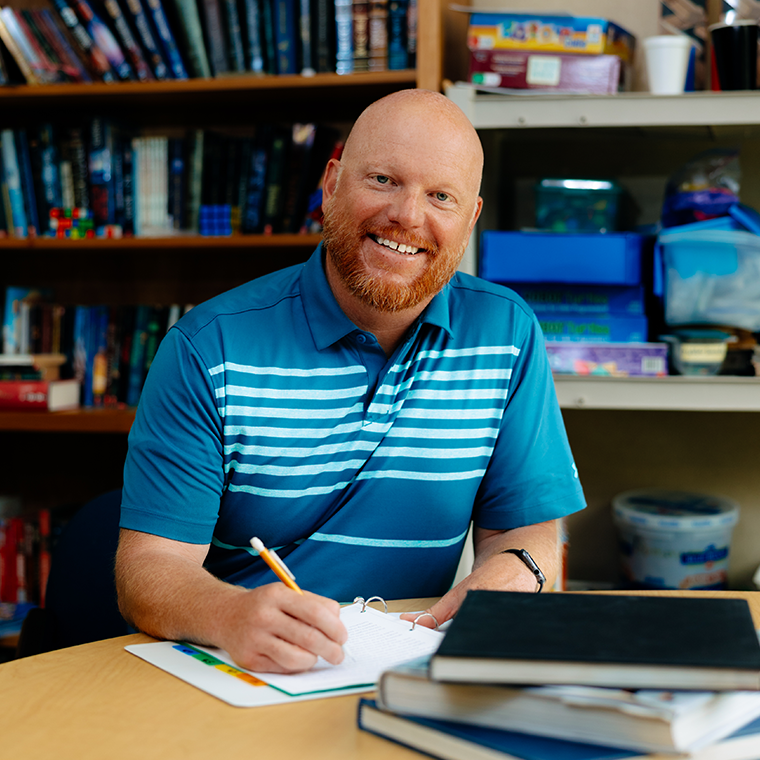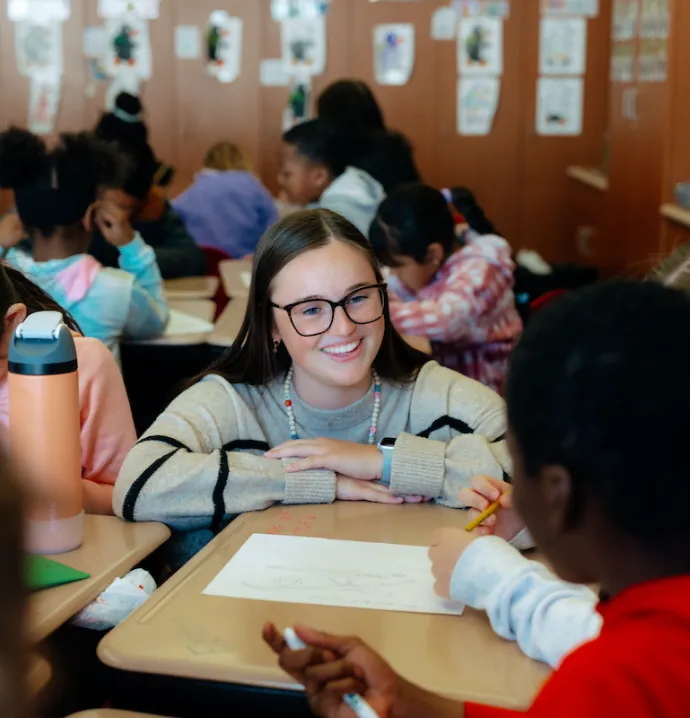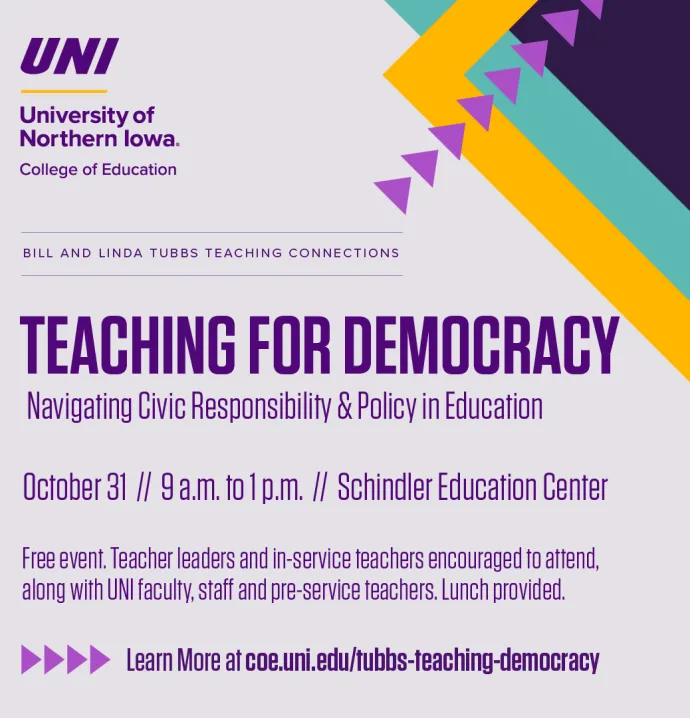Learning from Experience
Learning from Experience
Cage diving with great white sharks in Mexico. Digging up dinosaur fossils in Montana. Studying the rainforest in the Amazon.
Ben Olsen has seemingly done it all, and it’s all in the name of garnering knowledge to share back with his students.
Olsen, a three-time UNI College of Education graduate, currently serves as the talented and gifted (TAG) teacher at Hansen Elementary and North Cedar Elementary in Cedar Falls, as well as the K-12 TAG department chair for the school district. He’s passionate about hands-on learning and using real world experiences as vehicles to get his students interested in the curriculum.
“Kids are curious, so seeing how excited they get when I show them a picture of me out excavating a triceratops or in a rainforest and being able to share those opportunities with them is the best part of my job,” he says.
Olsen has had numerous opportunities to learn a variety of topics firsthand, like when he spent a couple of summers in Montana working with paleontologists. Now, all of his third-grade students learn directly from that experience as he shares about the fossils he saw and the dinosaur bones he encountered. Olsen even had sediment sent in from Montana so that his students can sift through it with their own hands.

Ben Olsen
‘00 BA, Elementary Education
‘06 MAE, Curriculum and Instruction
‘15 EdD
A few years ago, he went cage diving with great white sharks in Mexico and turned that experience into a measurement unit students get excited about.
Olsen traveled to the Amazon a year ago to participate in the Educator Academy in the Amazon. He attended again this summer, gathering more knowledge to bring back to his students.
“The idea is to get an authentic research experience so I can come back and work with my students and say, ‘This is what a real scientist does, and this is how we’re going to mimic those things,’” Olsen says.
He’s had these experiences across the globe thanks to the support of fellowships and grants, like the NASA Iowa Space Grant Consortium funding he recently received to attend this summer’s SPACE Conference at the Kennedy Space Center. He’ll use that experience to further develop space exploration education to share with students in Iowa schools.
For the past several years, he’s partnered with Ron Rinehart, currently head of Educational Psychology, Foundations and Leadership Studies at UNI, to create a Mission to Mars space exploration study. The idea is to mimic what NASA scientists do to prepare and execute a Rover mission to Mars.
Olsen and Rinehart created a curriculum which drew on ideas and resources Rinehart gathered from visiting the Johnson Space Center in Houston, making it as authentic as possible. Olsen finds the Mission to Mars unit helps students develop critical thinking and decision-making skills under constraints.
Olsen’s passion for hands-on learning – and traveling – stems back to his high school years. As a senior in Rockwell City, Iowa, he participated in a work-study program at his local elementary school. He was placed in a second grade and a fifth grade classroom, which “sealed the deal” on his decision to become a teacher.
On a visit to UNI, Olsen met with Chris Edginton, the former director of the School of Health, Physical Education and Leisure Services and founder of the Camp Adventure program, which sent students to help run day camps at American military bases. The opportunity to travel and teach these children sold Olsen on attending UNI.
As an undergraduate, Olsen recalls “really good and real professors” who prepared him to teach. He researched alongside former curriculum and instruction professor Greg Stefanich and presented the work at a national conference. He also traveled each year through Camp Adventure, working at places like the Kadena Air Base in Okinawa and the Naval Station Rota in Spain, while also training other students from across the nation for Camp Adventure.
“The camp itself gave me the opportunity to work with kids, and on the training side, that gave me the idea of how to prepare for a lot of instruction and work with people of various ages and backgrounds,” Olsen says. “All of those experiences helped prepare me to join the real world.”
Today, Olsen aims to do just that for his own students.




